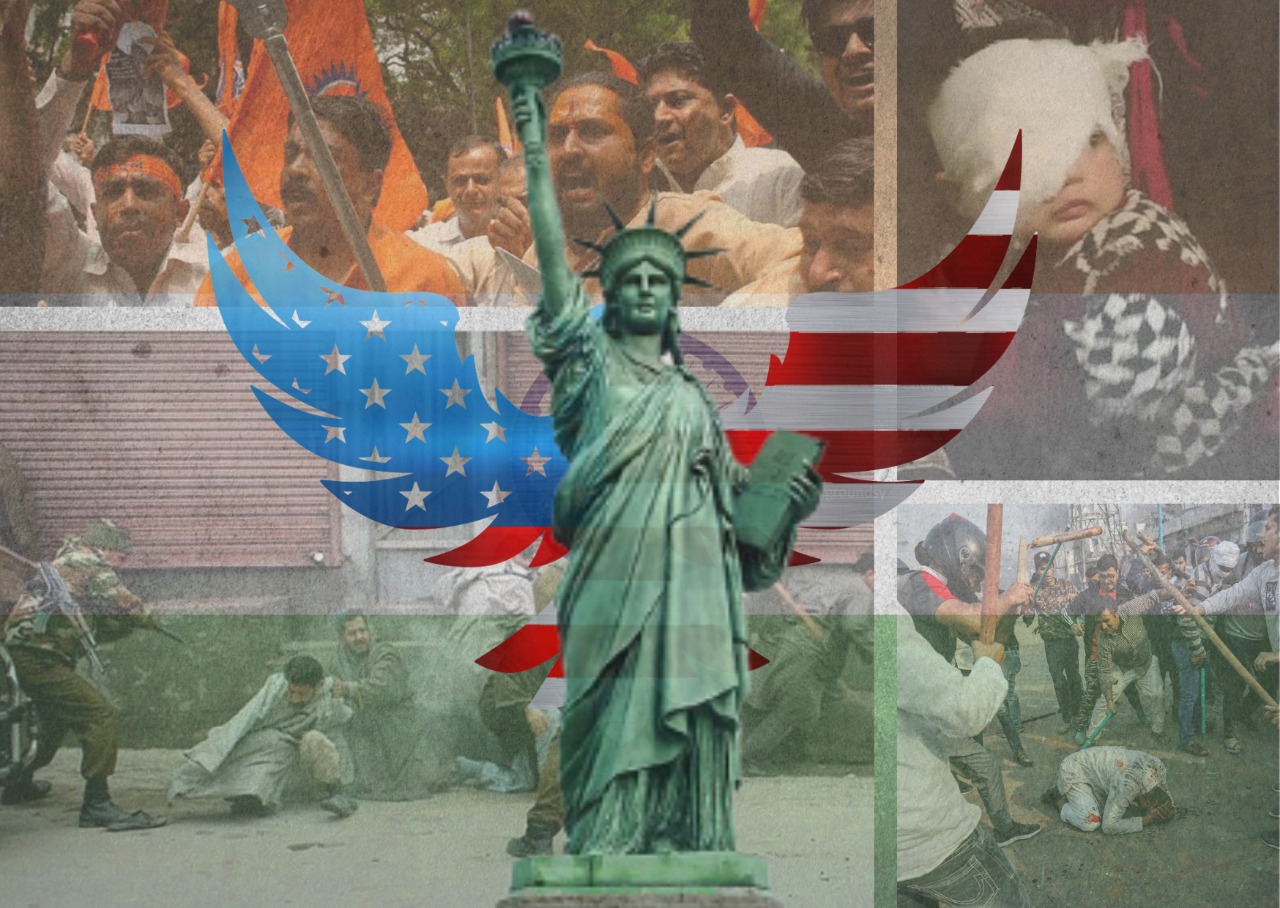The United States has always emphasised on, and taken pride in its core values of freedom, equality, and justice. In the post-World War II scenario, the US also assumed the global leadership role for the implementation of these values around the world. All the Western countries rallied around the US for supporting the cause. Over the past seven decades or so, the US and the west saw the world divided between democratic and authoritarian systems. The alliance, in pursuit of implementation of democratic values, did not even hesitate to wage wars against assumed authoritarian regimes.
The entire Cold War era was aimed at containing communism, an authoritarian system. More recent examples of the use of military force against authoritarian regimes include countries like Iraq, Libya and Syria. These countries were, however, far better under their so-called authoritarian regimes as after US military action, their people have been living a distressed life in conditions of civil war or under a perpetual threat of militancy and terrorism by various extremist groups. The US initially invaded Afghanistan to destroy a terrorist network, however, with the passage of time, it shifted its focus towards the implementation of democratic rule, women’s rights etc.
The US has been critical of the Russian and Chinese system of governance for decades. However, the criticism has now changed to confrontation in the shape of trade war, especially with China. As a consequence, many Russian and Chinese entities are under US sanctions for various reasons. At the same time, the US has gradually been enhancing its ties with India, which it now considers a critical partner in its China containment policy.
As a guest at the G-7 summit in the United Kingdom in June, Prime Minister Narendra Modi while addressing a special session on “open societies,” highlighted India’s “civilisational commitment to democracy, freedom of thought, and liberty.” Modi’s remarks were highly appreciated, as was the country’s support of a G-7 joint statement reaffirming a “shared belief in open societies, democratic values and multilateralism.” However, the reality about Modi and his country are far from the claimed system.
Modi is known as the “Butcher of Gujrat”, who as Chief Minister, oversaw the killing of over 2000 Muslims. Only months before the G-7 summit, the democracy watchdog Freedom House had downgraded India from “free” to “partly free,” citing a “multiyear pattern” of “rising violence and discriminatory policies affecting the Muslim population and a crackdown on expressions of dissent” under the Modi government.
Indian atrocities in the Illegally Indian Occupied Jammu and Kashmir (IIOJK) are an acknowledged fact and substantiated by many international humanitarian organisations. Revocation of Article 370 and 35A is a violation of UN resolutions, bilateral agreements with Pakistan and commitments given to the people of IIOJK by the Indian leadership. Confirmation of atrocities by international organizations lay bare the Indian lies about democratic values, human rights, multilateralism etc. The country’s Citizenship Amendment Act (CAA) is aimed at marginalising Muslim minorities. Attacks on Muslims by Hindu vigilantes on false claims of cow slaughter and frequent incidents of lynching are also a proof against the claimed all-inclusive and democratic processes in India. Under PM Modi, religious freedom for minorities has come to naught. There is also no freedom of expression in the media. Any criticism of the government is discouraged through threats, new laws and use of brutal force.
Today, India can be defined as a hardliner Hindutva-driven state with zero tolerance for religious minorities and no freedom of expression. Other democratic values are also under severe strain.
The current state of India’s democracy is totally out of sync with the value system the US endeavours to ensure around the globe. This should be a matter of serious concern for the US leadership as the two countries are strategic partners. If the US feels threatened by authoritarian states, India has also become an authoritarian state with no religious tolerance, violation of human rights and lack of freedom of expression. If the US has been waging wars to bring democracy and preserve human rights in many countries, how could it partner with India which also falls in the same category?
It is now for the US to decide whether to pursue its value system or abandon it to keep the Modi regime happy and use India against China, supposedly an authoritarian state. If the US feels challenged by authoritarian states such as Russia and China, its partners must be exemplary democracies. Reality, however, suggests the opposite—the US is partnering with an authoritarian system based on extremist religious ideology.
The writer has served as Pakistan’s Air Adviser at New Delhi from 2002-2006, and is presently Director Strategic Defence & Security at the Centre for Aerospace & Security Studies (CASS). This article was first published in The Nation. He can be reached at cass.thinkers@gmail.com.
Image Source: Mariam Siddiqui




